Here is the second of a series of Q&As with the three most recent alumni of Ebedi International Writers Residency. {Read the interview with Gertrude Uzoh HERE.}
Ebedi Writers Residency founded by Wale Okediran (Tenants of the House) is, perhaps, the best kept secret in the African literary community. Tucked away in Iseyin, a small town in the western parts of Nigeria, Ebedi gives resident writers six weeks of peace and quiet in a beautiful and comfortable work/living space. Past residents include the likes of Doreen Baingana (Tropical Fish) and Yewande Omotoso (Bomboy).
Jumoke Verissimo is the second of the three most recent residents we’re interviewing. The Lagos-born poet lives and writes in Ibadan. Her poetry collection, I Am Memory, is one of the definitive texts of contemporary Nigerian poetry.
In this interview, she tells us about her stay at Ebedi, gives us her take on poetry in Nigeria, and dishes on her two stray cats.
Enjoy!
You’ll probably think this is weird but I love your name—J.U.M.O.K.E. V.E.R.I.S.S.I.M.O.—sounds lovely. Jumoke is Yoruba. What ethnicity is Verissimo?
I don’t think it is, actually. I would say thank you though—Verissimo is Portuguese—and it means truth. This blog entry: This is Lagos, would be useful in understanding the context of my surname name.
How was Ebedi being as a workspace?
Ebedi served me well. I wanted an inclusive place, somewhere not far from home, —because of my young family—and also rustic. Ebedi offered me these things without asking too much from me. So, work came easily.
I have this (probably uninformed) idea that a writer’s residence is like an artistic cubby hole where writers do nothing but write endlessly and obsessively. Is it true or am I just making things up? What’s a typical day in Ebedi like?
Indeed, there is a cubby, and you can do what you desire of it. I went with my baby, so a typical day is influenced largely by her mood. I worked in the midnights and early mornings, when she fell into deep sleep. In the afternoons, I write, then spent time with my baby now and then (The residency provided a lovely woman, Jumoke, a namesake, who minded my baby during the day for a while). I liked that I could write and feel a sense of ease, mindless of having an infant around. The rest of the time was spent between thinking, cooking, reading, meeting the town, and keeping abreast of news.
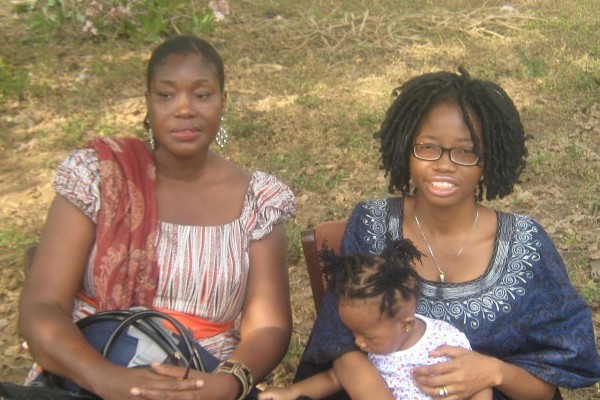
What do you like most about the town itself and the house where you live?
I like the people. You have to discover them though, and once you do, you’ll love their openness and ease to life. The house offered the same thing—it opened itself to you and you decided what you wanted of it.
I hear a short story collection is on the way. Tell us more.
A short story is collection on the way, eh? Indeed. The residency provided room to draft a collection of inter-connected short stories. What I see now is the possibility of submitting some stories from the ms to literary magazines in the following months. That is all I can say of the project at this time. I’m really superstitious about discussing a work in progress. Elaborately.
If you had to pick a poem that you’d describe as the soundtrack of your life, what would it be?
Psalm 23 (King James Version of the Holy Bible)
Does Nigeria have a poetic tradition? Would you say poets such as yourself and the likes of Tade Ipadeola and Ede Amatoritsero write differently from the Soyinkas and the Okigbos?
I suppose however that you are asking if we have been handed down some contemporary poetic tradition, like poets in the West placed themselves in schools or adopt poetic forms etc., Artists, not poets alone, continue to reflect on the past to reinvent itself.
Nigeria as a country is an ambiguous state that cannot be placed in a cultural portmanteau—it is a multilingual state, where numerous ethnic groups were amalgamated. The understanding here is that these ethnic states in the country have unique poetic traditions, and rich ones at that. These cultures have handed-down oral presentations that continue to influence generations, and those who are creatively inclined borrow from its aesthetics from time to time. Of course, there would be a time of apery, but it is sooner outgrown and originality sets in.
I love to think that poets, older and younger generation, source from the same tradition but represent differently, with a large influence from the media and socio-political environment of the time. We could say, the poetry of the different generations speaks into their time, and today, we are informed by a publishing that does parallel processing of ideas, that are written by us, but owned by all. The poets—Soyinka and Okigbo—wrote under strong influence of two cultures, the one they were born into (indigenous) and the other one molded their birth culture and developed perspectives, which were also influenced by the social happenings at their time.
This may sound silly but it’s hard not to think of the Nigerian literary scene as split between #TeamPoetry and #TeamNovels. Sometimes, it feels like novels and novelists enjoy more love from readers at home and away. What’s up with poetry in Nigeria? Why do Nigerians find it much easier to imagine their lives through stories than through poems?
Hmm. The web…I think the internet can be delusional in many instances—as this. Novelists, all over the world, make more sales than poets; of course you’re as lucky as the late poet Seamus Heaney.
Anyway, Nigeria as a country lives in an alignment state of poetics and fiction—it’s difficult not to, not with the headlines. It’s getting worse.
I Am Memory is your first book of poetry, right? Isn’t it Kafka that said a book is worth the read when it hits you hard on the head? Reading your poems feels like receiving blows. Lol. It’s a collection of poems asking those difficult questions about contemporary African life. Hard-hitting but richly-textured imageries and language. It was a success. What’s next for you?
Thank you. I do appreciate these kind words. A new collection of poems is soon to be published. There’s also a novel I’ve worked on for some time now too; it was longlisted for the Kwani prize.
Who would you suggest as a #MustRead contemporary African poet? And why?
I’ll be narcissistic and say me: Here’s a link to my book: I am memory (Dada Books) on Amazon.
That said, I’ll suggest a reader should engage as many Africa poets as possible. Each poet has a perspective that is unique, and needs to be discovered. At this time, Gabeeba Baderoon is a favourite. Why? She is the total package.
I know its cliché and borderline cheesy, but I like asking poets about love. Is there one imagery that encapsulates for you all that is complicated, weird, sweet, dreamy, f* up, fulfilling, and real about love?
Love is.
I love.
The imagery that comes to mind is the coconut—and don’t ask me what love has got to do with the coconut fruit.
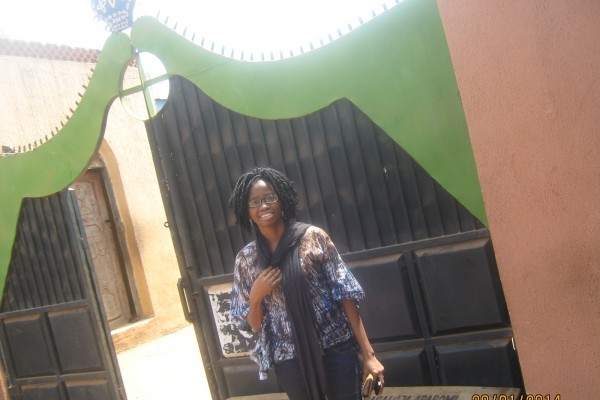
What follows is a list of what I like to call WTF questions. The key is not to take them seriously. Lol.
1. How important are titles when you write poems?
Tissued
2. Do you have a beauty obsessions? I’m a card-carrying make-up girl. Apparently, Chika Unigwe and Ayo Olofintuade both love shoes. Chimamanda Adichie is obsessed with hair blogs. Selasi lives and breathes clothes. You?
If I have any obsession at this time, I’ll be dead, or a first-class murderer. I love good things.
3. You have a stray cat? Do tell us more…
Yes, two cats came to our doorstep; we offered them food and they never left. One is dead now. The other one comes around after the ‘day’s work’, and when I’m not too busy, we talk or just stare at ourselves for a while and then part.
4. Are you one of those people who give names to personal objects? Think Ikhide’s Ipad a.k.a. Adunni.
Well, Yes. Sometimes.
5. I’m sorry, but I have to bring up the city question. You grew up in Lagos, but now live in Ibadan. Which of the two cities rocks the most?
Er…let’s just say, “and I…I…will always love you.” (That’s in Whitney’s voice, to Lagos). Ibadan is unveiling itself to me. It is a city to learn.
6. Nietzsche had Dionysus. Soyinka has Ogun. Do you have an alter ego?
David? You get to do all those “wrong stuff” and still become one of the most memorable kings in the bible. Common, that’s the life!
Also, I wouldn’t mind writing poetry that would become a sanctuary, for every generation.
***
Follow Jumoke on Twitter: @awapointe
Check out her website HERE


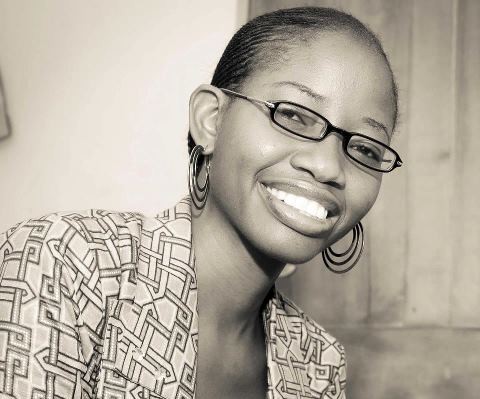
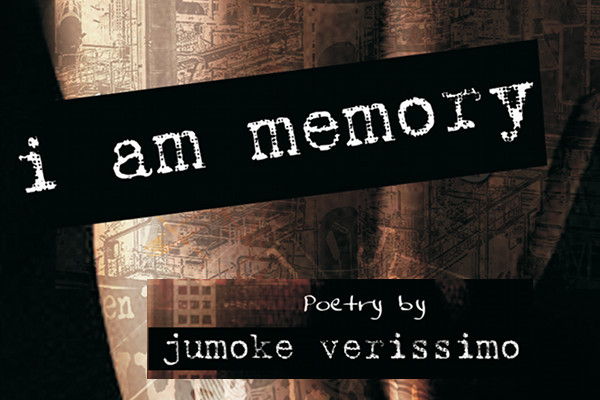

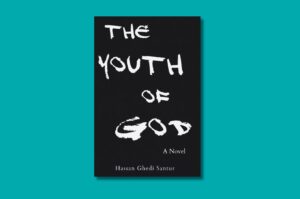

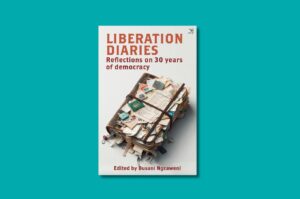
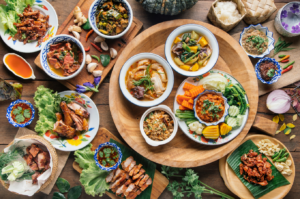
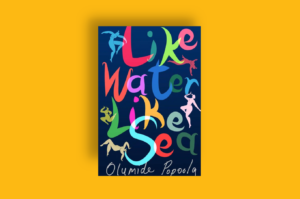


COMMENTS -
Reader Interactions